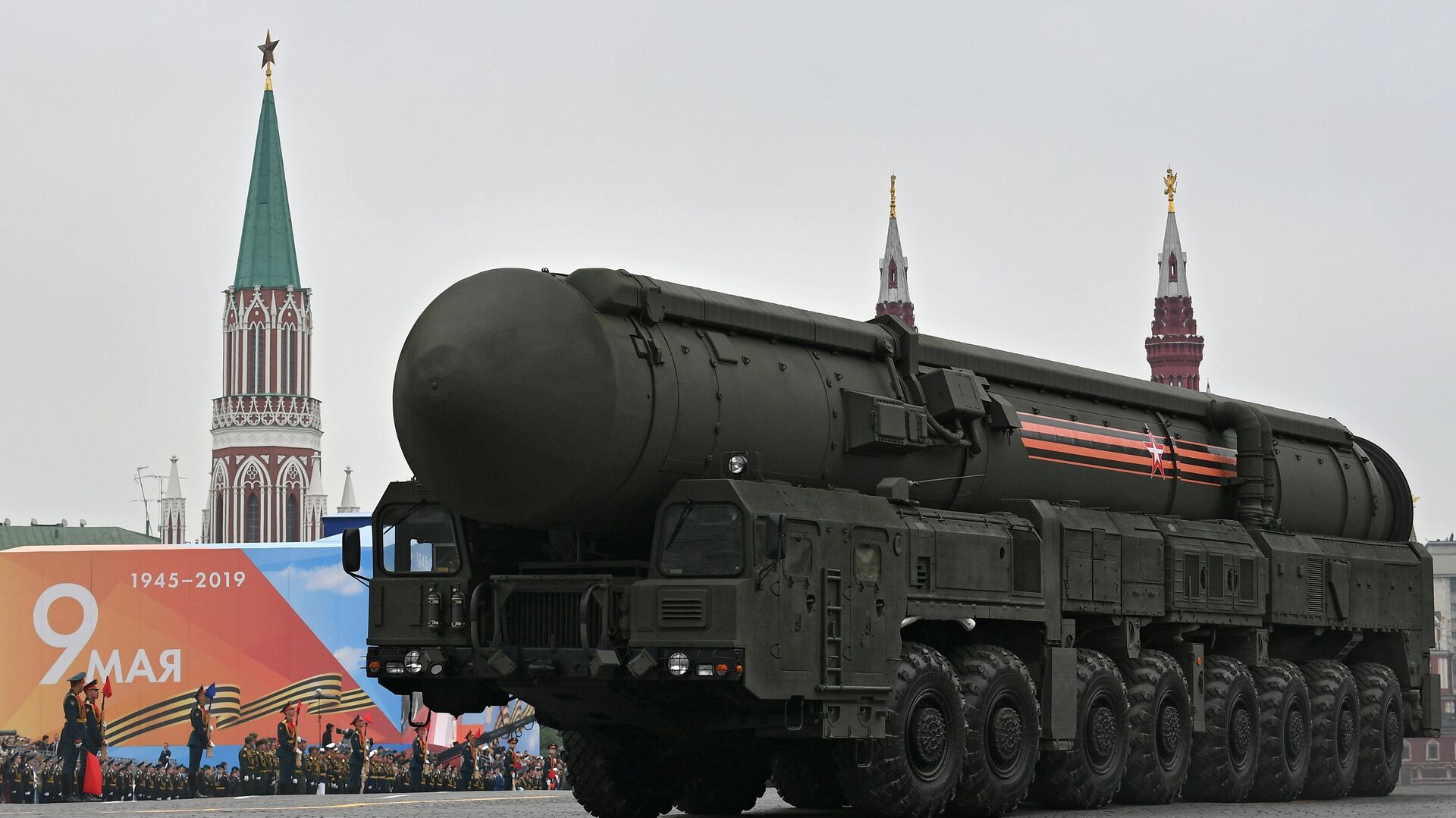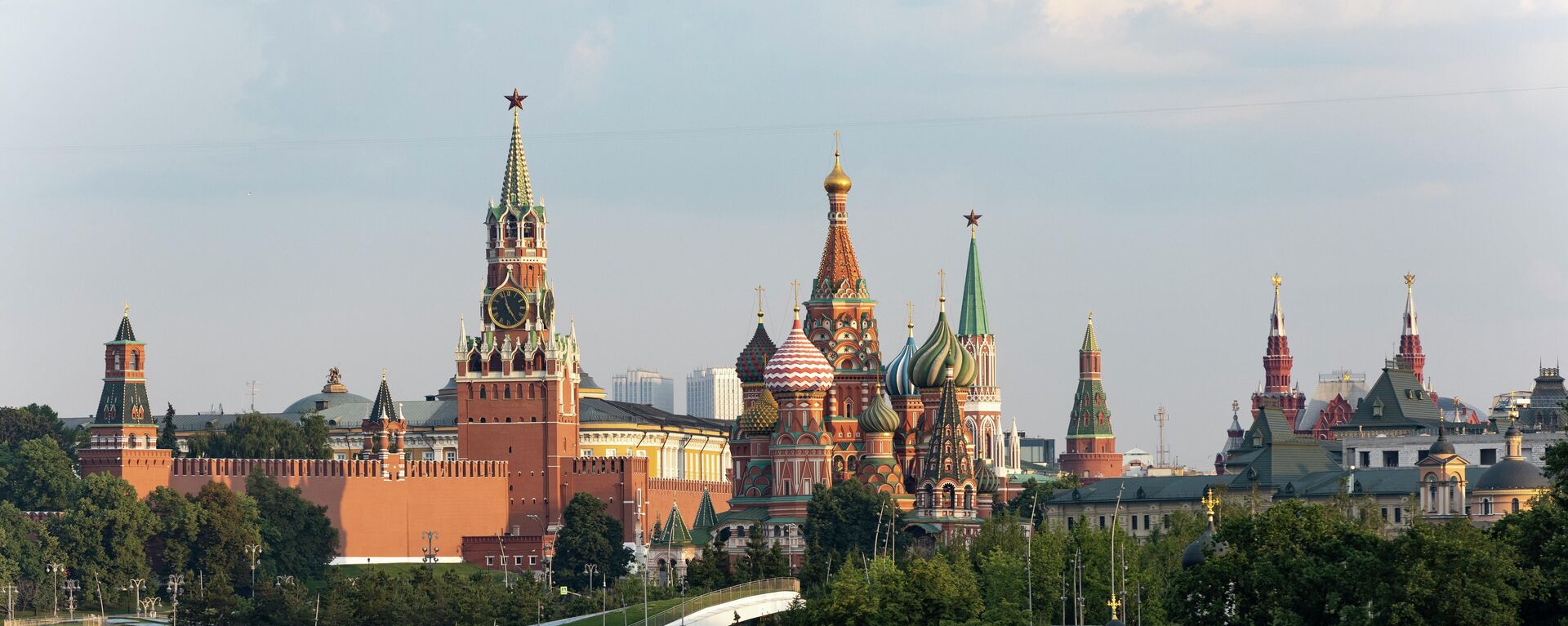Putin Signs Updated Russian Nuclear Doctrine
08:22 GMT 19.11.2024 (Updated: 12:06 GMT 19.11.2024)

© Sputnik / Aleksandr Vilf
Subscribe
The new policy outlines when and why Moscow would use nuclear weapons, which, it stipulates, are purely defensive in nature.
Russian President Vladimir Putin has approved the foundations of Russia's state policy in nuclear deterrence, signing a decree published on the legal information portal on Tuesday.
"In order to improve the state policy of the Russian Federation in the field of nuclear deterrence, I decree: 1. To approve the attached Fundamentals of the state policy of the Russian Federation in the field of nuclear deterrence," the document said.
The decree takes effect from November 19.
According to the document:
Russian state policy in nuclear deterrence is defensive in nature;
There is a level of adaptability according to military dangers and threats included in the foundations of Russian state policy in nuclear deterrence;
Deterring potential enemies from aggression against Russia and its allies is among the country's highest priorities;
Russia's state policy on nuclear deterrence is aimed at maintaining the potential of nuclear forces at a level sufficient for nuclear deterrence.
The document stipulates that:
Aggression against Russia or its allies by any state that is a member of a military coalition is considered to be aggression by the coalition as a whole;
Aggression against Russia or its allies by a non-nuclear state with the support of a nuclear one is considered to be a joint attack.
While Russia considers nuclear weapons a means of deterrence, the use of which is an extreme and forced measure, Moscow may use them in the case of an attack against Russia or Belarus that creates a critical threat to territorial integrity, as well as in response to the use of weapons of mass destruction.
"The state policy in the area of nuclear deterrence is defensive in nature, aimed at maintaining the potential of nuclear forces at a level sufficient to ensure nuclear deterrence, and guarantees the protection of the sovereignty and territorial integrity of the state, deterrence of a potential enemy from aggression against the Russian Federation and (or) its allies, and in the event of a military conflict - preventing the escalation of military actions and their termination on terms acceptable to the Russian Federation and (or) its allies," the document read.
The policy also aims to ensure that a potential adversary understands the inevitability of retaliation in the event of aggression against Russia.
Furthermore, Russia sees the deployment of nuclear weapons on the territory of non-nuclear states as a serious military danger, the document continues.
Russia’s new doctrine likewise guarantees the cessation of military conflicts on terms acceptable to Russia.
Attacks against Russia's critical infrastructure may justify the use of nuclear weapons, as per the decree. The document says that enemy actions against Russian facilities that could lead to ecological catastrophe could also justify the use of nuclear arms.
Other Details of Russia's New Nuclear Doctrine
Nuclear deterrence can be triggered if the enemy has attack drones threatening Russia;
The massive launch of air or space attack weapons that cross the Russian border is one of the conditions that would determine the use of nuclear weapons;
The enemies' deployment of missile defense systems in space is a danger, the neutralization of which would call for Russia to conduct nuclear deterrence;
Nuclear deterrence will be carried out continuously in peacetime, during threats of aggression, in wartime, and until the use of nuclear arms;
Reliable information about the launch of ballistic missiles attacking Russia or its allies makes the use of nuclear weapons in response possible;
Russia's nuclear deterrent forces include land-, sea-, and air-based forces.
Russia is making all necessary efforts to prevent any escalation that could provoke military conflicts, including nuclear ones, the doctrine concludes.


